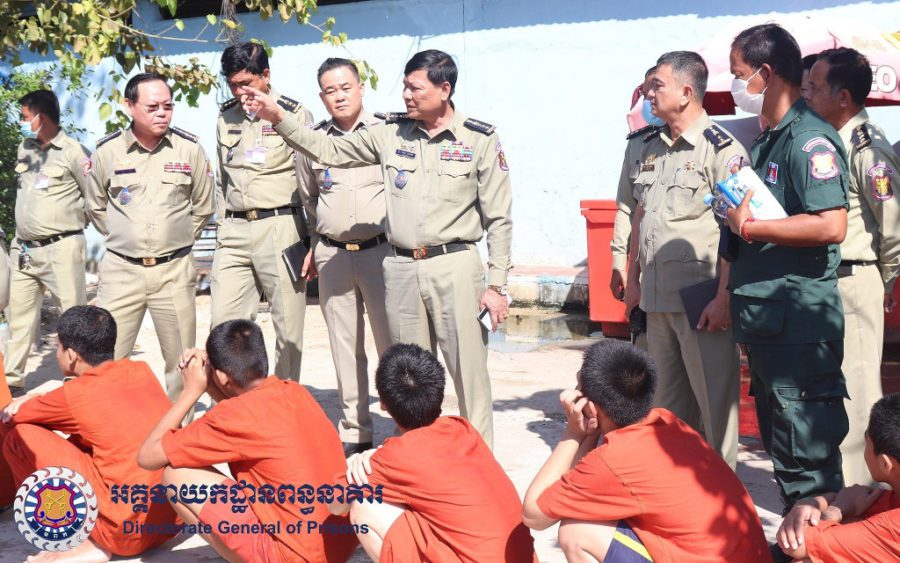No prisoners have been tested for Covid-19 despite contact with an infected department director, even as more than 250 prison officers at the same Phnom Penh facilities have received tests due to the risk of contagion, officials said.
With the prisons already suffering from overcrowding, a rights monitor called the lack of testing “negligence,” while detainees’ mothers said they were worried about their children’s health and a potential outbreak.
Chhem Savuth, the country’s prisons director, tested positive for Covid-19 over the weekend, part of a newly emergent cluster of 17 people so far.
Nearly 5,000 suspected contacts have been tested this week, according to authorities. But health officials were too busy to do tests for inmates, said Nuth Savna, spokesperson of the Interior Ministry’s prisons department.
“They are busy working with everybody who is related, directly or indirectly — thousands of them: in the Interior Ministry and the families of officers,” Savna said.
“They are testing people in the community first. It’s more difficult to manage if transmissions occur in the community than in specific places like the prison,” he said. Prisoners would be tested once health authorities were ready, he said, but could not say when that might be.
Savna added that the prisons were running short of masks, gloves and other health supplies.
Prey Sar Prison’s Correctional Center 1 chief Yin Kun said, like Savna, that none of the prisoners had been tested.
However, 251 of his officers were tested because Savuth had visited the facilities on November 23, he said.
Photos shared online by the Directorate General of Prisons show the director standing over groups of prisoners and gesturing, without wearing a mask.
Kun said officers were being careful, washing hands and wearing masks, but they couldn’t go into quarantine.
“How could we stay home when we have nearly 8,000 prisoners to monitor?” he asked.
“About the prisoners, they are OK. They have no problems,” Kun added.
Licadho monitoring manager Am Sam Ath disagreed.
“It’s negligence,” Sam Ath said. “It should be a high priority because it’s a higher risk than outside, if transmission were to happen among prisoners. Because we already know that it’s overcrowded in the prisons. We are already worried about infectious diseases.”
Ty Mary, the mother of jailed activist Hun Vannak, said her son sleeps with just 3 centimeters of space between him and the other prisoners surrounding him.
Her son’s skin itches from the dirty cells, she said.
“I’m deeply worried, you know,” Mary said. “It can’t be made safe like outside, where we can stay far apart from others.”
“It’s crowded in there,” she continued. “If transmission occurs, it’ll explode. [They] can’t escape because everyone is overcrowded behind bars. Even sleeping, walking and sitting, they are squeezed together.”
Mary criticized officials who had not worn masks or followed other public health protocols.
“They should not be neglectful like that. I can’t accept it. They are the high-ranking officers: They should take the bigger responsibility,” she said.
Thach Thida, the mother of another imprisoned activist, Chhoeun Daravy, said her daughter was losing weight and she was concerned.
“I’m worrying a lot about the issue,” she said of a potential outbreak. “Their living and eating [conditions] lack hygiene.”
Khlout Dara, chief of Prey Sar’s Correctional Center 2, hung up on a reporter.
Health Ministry spokesperson Or Vandine said “everyone” at Prey Sar had had a sample taken — but did not know if that included prisoners.
Dozens of senior government officials were being tested on Tuesday afternoon because a lawmaker had met the prisons director, and later attended a National Assembly session.













